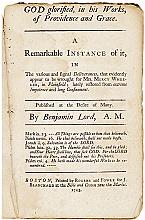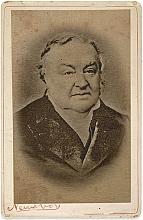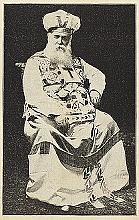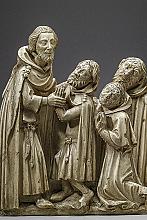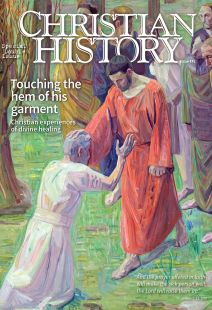“We have prayed three people on the brink of death back to life”
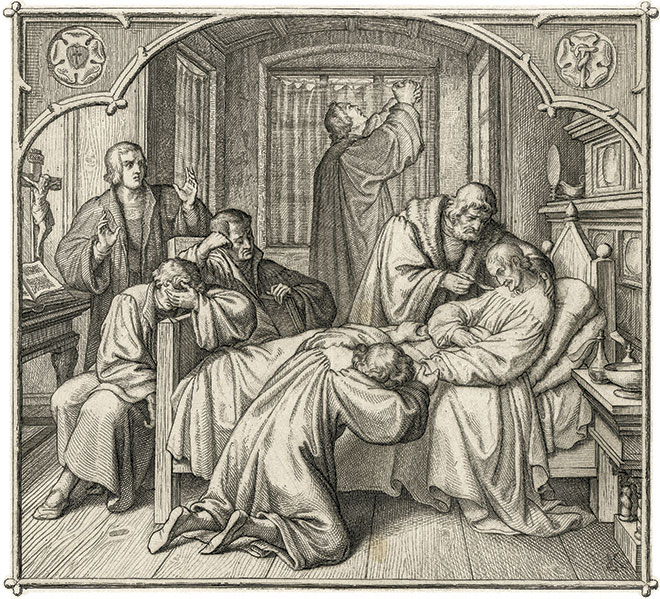
[Above: Luther Prays for Philipp Melanchthon, from Dr. Martin Luther the German Reformer, illustrated by Gustav Koenig, published by Rudolf Besser, Gotha, 1850s—United Archives/HistAuge / Bridgeman Images]
In the spring of 1542, Martin Luther (1483–1546) remarked to his friends, “We have prayed three people on the brink of death back to life: me, my Katie, and also Philip, whose eyes had already become lifeless.” Two years previously in June of 1540, Philip Melanchthon (1497–1560), Luther’s friend, colleague, and right-hand man, had lain deathly ill in Weimar, Germany, some 120 miles southwest of Wittenberg.
Melanchthon had departed Wittenberg for an important meeting in the distant Alsace region but halted well short of his destination, unable to travel further and too sick to return. The cause of his illness is unknown.
When Luther received word of his friend’s dire state, he rushed to be beside him. He simply could not believe that God would allow “Master Philip” to die, for simply too much divinely ordained work of reformation remained to be done. In Luther’s mind Melanchthon’s deep learning, eloquence, and strong evangelical faith were essential to the continuing spread of the gospel. He had to recover!
This divine instrument
As Luther entered the room where the lifeless Melanchthon lay, he cried out, “May God protect us! Look how the devil has mistreated this divine instrument.” Luther felt this diabolical mistreatment personally, taking it as an attack against him and his ministry, as well as against his friend.
He walked to the window and fervently prayed for Melanchthon’s healing, displaying striking boldness with the Almighty:
“The Lord God had to stretch out his hand to me. For I threw the entire sack [of Scripture] in front of his door and rubbed his ears with all the promises to hear prayers that I was able to recall from the Holy Scripture, so that he had to hear me, were I to believe all those other promises.” He then took his friend’s hand and said, “Be of good comfort, Philip, you shall not die!”
Luther spoke biblical promises over Melanchthon, assuring him that God does not desire the death of the sinner but that he turn and live (Ezek. 18:23,32) and that God works death but also life, wounding yet also healing (Deut. 32:39). When he had finished, Melanchthon began to revive.
Luther was overjoyed. In a letter to his wife, Katie, he exclaimed, “Master Philip truly had been dead, and really like Lazarus, has risen from death. God, the dear Father, listens to our prayer. This we [can] see and touch [with our hands], yet we still do not believe it.”
Other accounts also tell of Luther praying for healing and of the sick being restored to health. When he received word that fellow reformer Friedrich Myconius (1490–1546) lay on his deathbed, Luther wrote to him, commanding him to recover and assuring him that he was praying for the same. Myconius lived six more years!
Early Protestant guides for pastors urged them to pray for healing, and Protestant devotional literature encouraged the laity to do the same. One of the most famous works of Protestant devotion, Johann Habermann’s (1516–1590) Prayer Booklet (1565), even contains sample prayers for healing:
And if it is not contrary to your holy will and the salvation of their souls, please help the sick to recover, strengthening them and making them healthy in body and soul, for if you will it, you can certainly heal them completely.
Lay Protestants sought (and appeared to have received) bodily healing from miraculous wells, including one at Bad Pyrmont in Germany, with their pastors’ approval. The biblical precedent of healings at the pool of Bethsaida (John 5:1–15) helped to legitimate a practice that otherwise would have been deemed pagan.
Protestants believed the medieval church had veered away from Scripture, relying too much on human teaching and practices. Scripture contains numerous accounts of divine healing; faithfulness to the Word thus required Protestants to embrace such supernatural intervention, even if they disagreed with Catholics on how to understand and seek it.
Throwing out the baby
But the story of healing in the Reformation is not so simple. Notwithstanding the continued Protestant practice of praying for divine healing, many scholars argue that the Protestant assault on Catholic “superstition” effectively threw the baby out with the bathwater with respect to divine intervention.
As Protestants sought to reform traditional beliefs and practices, many of which promised divine healing, they fostered a kind of hesitancy—even skepticism—about healing miracles. In their zeal to refute claims of healing associated with saints and relics, for example, Protestants significantly restricted belief in supernatural intervention and miracles.
A good case in point is Protestant exegesis of James 5:13–18. This classic passage serves as the foundation for the Catholic sacrament of unction (see pp. 8–11).
In the Babylonian Captivity of the Church (1520), Luther argued that the Epistle of James was not apostolic (he elsewhere called it an “epistle of straw”); that the anointing in James 5 was for the sick and not the dying; and that experience shows that the promise of healing in James 5 is rarely fulfilled—which cannot be true of a sacrament, for the divine promise attached to sacraments must always hold true. Luther also maintained that the healing rite envisioned in James 5 was for the early church only; the church of the sixteenth century must welcome suffering.
Later in the century, Lutheran pastor Lucas Osiander (1534–1604) followed Luther’s lead regarding anointing the sick with oil:
It was a custom in the primitive church that when Christians . . . still had the gift of healing, they would draw near to the sick and anoint them with oil, pray, and also thus restore them to health. This custom had begun with the apostles concerning which Mark writes, “And going forth they were preaching that people should repent, and they were casting out many demons, and they were anointing many sick people with oil, and they were being healed,” Mark [6:12–13]. This custom of anointing was rightly observed in the church as long as it was gleaming with miracles. And with the cessation of miracles unction also had to cease.
According to Osiander, the sixteenth-century Lutheran Church was no longer “gleaming with miracles.” The father of Reformed Protestantism, John Calvin (1509–1564), also believed that the gift of healing was for the apostolic age only. In his commentary on James 5:14, Calvin maintained:
I will only say this, that this passage is wickedly and ignorantly perverted when extreme unction is established by it and is called a sacrament to be perpetually observed in the Church. I indeed allow that it was used as a sacrament by the disciples of Christ (for I cannot agree with those who think that it was medicine), but as the reality of this sign continued only for a time in the Church, the symbol also must have been only for a time. . . .
Nothing is more absurd than to call that a sacrament which is void and does not really present to us that which it signifies. That the gift of healing was temporary, all are constrained to allow, and events clearly prove: then the sign of it ought not to be deemed perpetual. . . .
Apish and elfish
A generation later English pastor Richard Turnbull (d. 1593) sounded a similar note. In his treatment of James 5, he argued that the age of miracles had ended with the close of the New Testament and did not extend to Elizabethan England:
Our adversaries the papists, by an apish [foolish] and elfish [superstitious] imitation of the apostles, contrary to their meaning, retain the sign, the thing that has ceased. And although healing was taken away from the church long ago, yet they still anoint, which they also make a sacrament, and call it extreme unction. They minister it to the sick, not in sign of health and recovery, as the apostle did, but when there is no hope of life in them. . . .
[James] speaks accordingly as the gift of healing was in force in his time, and he binds men and women to this word for as long as this gift continued, not for all times, as the papists do. . . .
When in the apostles’ time the gift of healing was in force, they were told to send for the elders of the church, that they might pray for the sick and anoint them with oil, so that they might recover; so now (the gift being taken away) in our great and extreme sickness, we are to send for the elders of the church, the pastors, the ministers, the preachers of the word, with the faithful brothers, so that by them we may be taught that the cause of our sickness is our sin and so that they may inform us in the doctrine of unfeigned repentance and may comfort and counsel us in our extreme need, and finally may pour out prayers to God for the assistance of his grace and the increase of all needful spiritual virtues in us, as well as for the removal of our pains and sickness, as shall seem best to God’s heavenly wisdom.
Once we have done this, we may use all other lawful means of medicine or the like for our recovery in the fear of God.
But this Protestant cessationist narrative also requires nuance and qualification. Protestants believed that sickness and health were in God’s hands, and therefore, anytime a person recovered from an illness God was always to be thanked for the healing he provided.
They believed in the reality of the spiritual realm, which includes angels and demons, and, as we saw in Luther’s response to Melanchthon’s illness, they firmly held that the devil could be the cause of sickness and that God could thwart his diabolical designs. (Protestants did not attribute all sickness to sin, as Turnbull suggested.)
And Protestants held out the possibility that God responds to prayers for healing. Even as Luther opposed extreme unction, he maintained true faith could heal sickness, for faith can do anything. While reformers thought the New Testament gift of healing was confined to the apostolic age and not available in their own day, they still believed God heals the sick, although no longer with the frequency recorded in Scripture.
The apostolic gospel
Protestants also continued to believe in miracles. In their minds the recovery and spread of the gospel through the Reformation was the greatest miracle Christians had experienced in centuries. When Catholics accused them of not having miracles to confirm their allegedly biblical Christianity, Protestants responded that they did not need such miracles because they had simply recovered apostolic Christianity and the apostolic gospel.
The purpose of the New Testament miracles, they argued, is to confirm the gospel; as they already had the gospel, they did not need the confirming miracles. Calvin made this point explicitly in a prefatory address to his Institutes of the Christian Religion (1536).
For Protestants the miraculous recovery of the gospel worked a further wonder: the healing of anguished souls. Only the gospel could provide peace and comfort for consciences deeply troubled by guilt for sin, for only it gives the assurance of divine forgiveness that such consciences require.
Caspar Huberinus (1500–1553), a Lutheran theologian and pastor, explained that when Jesus healed the Roman official’s son (John 4:47–54), this “little miracle” corresponded to the official’s weak faith; the real miracle occurred when the official believed in Jesus and experienced healing for his soul through forgiveness of his sin.
Protestantism sought to provide deliverance from the hell of a guilty conscience: this is the healing its leaders earnestly sought for themselves and their contemporaries. Reformers believed they had found this healing in the gospel, newly recovered through the ministries of Luther, Calvin, and others. They looked to the gospel to cure the most debilitating illness of their age—guilt—with a healing they saw as a wonder from heaven.
When assessing healing in Christianity through the centuries, it is important to understand what our brothers and sisters in the past saw as the most important affliction of their age. One can regret the way the reformers placed limits on the New Testament gift of healing—I regret it—but one should also not lose sight of the spiritual healing many experienced through the Protestant gospel, a healing they saw as nothing short of miraculous. CH
By Ronald K. Rittgers
[Christian History originally published this article in Christian History Issue #142 in 2022]
Ronald K. Rittgers is professor of the history of Christianity at Duke Divinity School. He is the author of several books including The Reformation of Suffering and A Widower’s Lament.Next articles
Marching to Zion
Stories from a nineteenth-century transatlantic faith-healing movement
Joel CabritaChristian History Timeline: The gospel brings healing
Church history is brimming with stories of divine healing; here is a timeline of some featured in this issue
the editors



